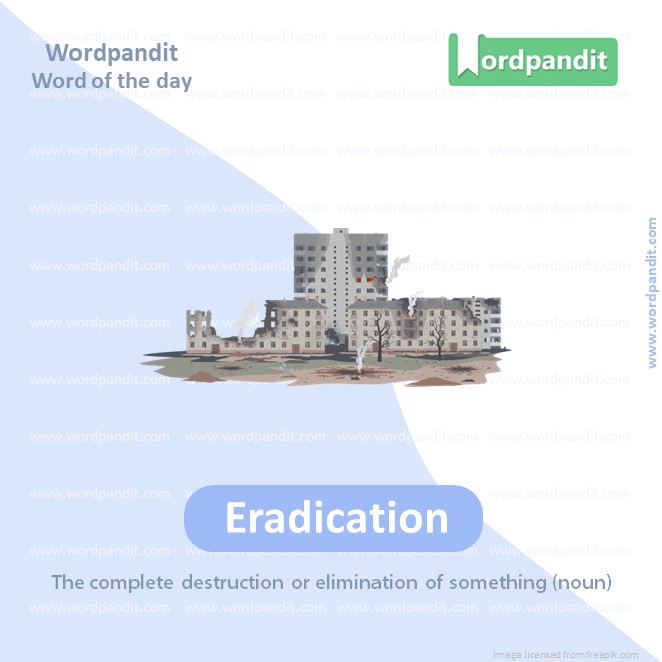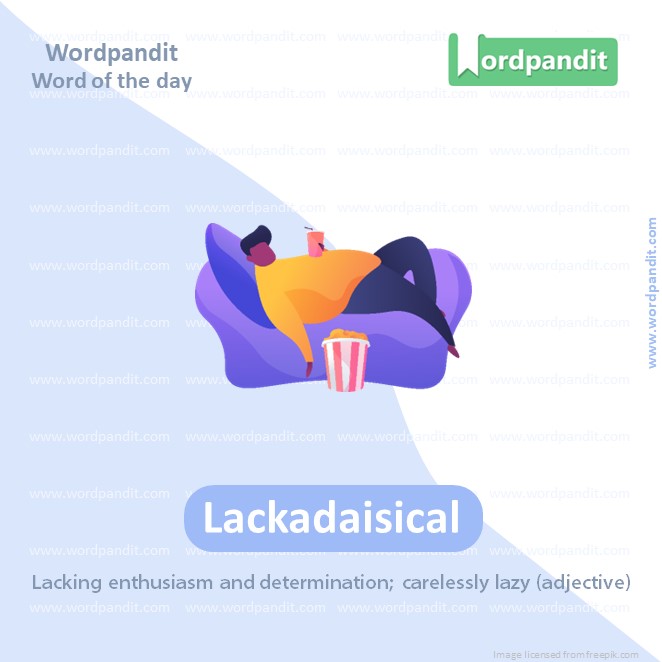Daily Vocabulary from Indian Newspapers and Publications
Welcome to Wordpandit’s Indian Vocabulary Hub
At Wordpandit, we understand the importance of staying rooted in the local context while expanding your language skills. This section focuses on enriching your vocabulary with words and phrases drawn from India’s leading newspapers and publications, ensuring you're learning vocabulary that is practical, relevant, and uniquely Indian.
Why Indian Sources Matter
We believe that the best way to master any language is by immersing yourself in local content. That’s why we carefully curate vocabulary from top Indian publications, including:
- The Hindu
- The Times of India
- The Economic Times
- Hindustan Times
- Live Mint
- The Indian Express
- And many others...
Stay Updated, Stay Relevant
With daily updates from Indian news sources, you’ll be consistently learning words that reflect the trends and shifts in Indian society and culture. Our focus is to provide vocabulary that enhances your understanding of the language in an Indian context.
How Wordpandit Supports Your Goals
Whether you’re preparing for exams, aiming to improve your professional communication, or simply want to stay connected with the latest Indian vocabulary, Wordpandit is here to guide you every step of the way.
Learn with a Practical Approach
Our interactive learning methodology includes real-world examples, engaging activities, and context-specific usage to ensure that every word becomes part of your active vocabulary.
Dive into Indian Vocabulary Today!
Why Choose Wordpandit?
Practical Learning: Focus on words you'll actually encounter in real-world reading, enhancing your comprehension and communication skills.
Diverse Content: From current affairs to scientific breakthroughs, our varied sources expose you to vocabulary across multiple domains.
Effortless Integration: Make Wordpandit a part of your daily routine. Just a few minutes each day can significantly boost your lexicon over time.
Your Path to Vocabulary Mastery
- Visit our Daily Vocabulary section regularly
- Explore new words and their usage in context
- Practice incorporating these words into your own writing and speech
- Track your progress as your vocabulary expands
Start Your Journey Today
Embark on your vocabulary enhancement journey with Wordpandit. By consistently engaging with our daily posts, you'll build a robust vocabulary that serves you well in academic, professional, and personal contexts.
Remember, a word a day keeps linguistic limitations at bay. Make Wordpandit your daily companion in the quest for vocabulary excellence!
WORD-1: Plenary
Context:
"On the floor of the closing plenary, many lauded this as a historic achievement since it continued to preserve the 1.5 degrees Celsius temperature target and mentioned transitioning away from fossil fuels. From a developing country’s perspective, adaptation is as crucial as mitigation." - Hindustan Times
Explanatory Paragraph:
The word "plenary" refers to something that is complete, full, or attended by all members. It is commonly used in formal and official settings, such as meetings, sessions, or assemblies where full participation is expected. In legislative and organizational contexts, a "plenary session" is one where all members are present to discuss important matters.
Meaning: Complete, absolute, attended by all members (Adjective); A meeting or session attended by all members (Noun)
Pronunciation: PLEE-nuh-ree / PLEN-uh-ree
Difficulty Level: ⭐⭐⭐ Intermediate
Etymology: From Latin "plenus" meaning "full" → Late Latin "plenarius" meaning "complete" → Adopted into English as "plenary" in the 15th century.
Prashant Sir's Notes:
The word "plenary" is often searched in phrases like **"plenary session"**, **"plenary power"**, and **"plenary meeting"**. A **plenary session** refers to a meeting where all members of a group, organization, or legislative body are expected to be present. **Plenary power** describes complete or absolute authority over a subject, often in legal or governmental contexts. Understanding these common usages will help grasp the real-world applications of the word.
Synonyms & Antonyms:
Synonyms: Comprehensive, absolute, full, entire, complete
Antonyms: Partial, incomplete, limited, restricted
Usage Examples:
- The conference concluded with a **plenary session**, where all delegates gathered to vote on the final resolution.
- The president was granted **plenary power** to make emergency decisions without parliamentary approval.
- The judge had **plenary authority** over the case, meaning his ruling would be final.
- The university organized a **plenary meeting** to discuss changes in academic policies.
Cultural Reference:
"The United Nations often holds **plenary sessions** to address global issues, ensuring that all member states have a voice in important decisions." - United Nations Records
Think About It:
Why do you think plenary sessions are important in democratic institutions? How do they ensure transparency and fairness?
Quick Activity:
Find a recent news article where the term "plenary session" is used. Summarize the main decisions made in that session in one paragraph.
Memory Tip:
Think of "plenary" as "plenty"—a **plenary session** includes **plenty of people** (everyone), and **plenary power** means **plenty of authority** (complete control).
Real-World Application:
In business and governance, **plenary sessions** are crucial for making key decisions that affect all members. Understanding this term helps when following global summits, corporate meetings, and legislative debates.
WORD-2: Eradication
Context:
"The GGA, as agreed in Dubai, includes 11 targets to be achieved by 2030. Seven pertain to sectors and themes such as water, agriculture, health, biodiversity, human settlements, poverty eradication, and cultural heritage." - Hindustan Times
Explanatory Paragraph:
"Eradication" refers to the complete elimination or destruction of something harmful or undesirable. It is commonly used in contexts such as disease control, poverty reduction, and the removal of social or environmental issues. When something is "eradicated," it means it has been wiped out completely, leaving no trace.
Meaning: The act of completely eliminating or destroying something (Noun)
Pronunciation: ih-RAD-ih-KAY-shun
Difficulty Level: ⭐⭐⭐ Intermediate
Etymology: From Latin "eradicare" (to root out), derived from "radix" (root), meaning to pull something out from its roots.
Prashant Sir's Notes:
The word "eradication" is often searched in phrases like **"poverty eradication," "disease eradication,"** and **"complete eradication."** - **Poverty eradication** refers to efforts to completely eliminate poverty worldwide. - **Disease eradication** is used in the context of eliminating diseases like polio or smallpox. - **Complete eradication** is often used in discussions about eliminating pests, viruses, or other harmful elements. These common usages help us understand how eradication is applied in different fields.
Synonyms & Antonyms:
Synonyms: Elimination, extermination, removal, abolition, annihilation
Antonyms: Establishment, preservation, continuation, maintenance
Usage Examples:
- The **eradication of polio** has been one of the greatest achievements in medical history.
- The government launched new programs aimed at **poverty eradication** in rural areas.
- Scientists are working toward the **eradication of malaria** through advanced vaccines.
- The campaign focused on the **eradication of illiteracy** by providing free education to underprivileged children.
Cultural Reference:
"The **eradication of smallpox** in 1980 was a historic moment for global health, marking the first time a human disease was completely eliminated through vaccination." - World Health Organization (WHO)
Think About It:
Do you think **complete eradication** of poverty or diseases is possible? What are the biggest challenges in achieving it?
Quick Activity:
Look up a current global effort for **disease eradication** and write a short paragraph summarizing the progress made so far.
Memory Tip:
Think of "eradication" as **"removing from the root"**—just like pulling out weeds so they don’t grow back!
Real-World Application:
Understanding the concept of "eradication" is crucial in fields like medicine, environmental science, and social policy. It helps in discussions about global health, economic development, and humanitarian efforts.
WORD-3: Arbitration
Context:
"Both SC judgments on arbitration law are landmark and authoritative with clarificatory declarations in the arbitration jurisprudence of India." - Hindustan Times
Explanatory Paragraph:
"Arbitration" refers to a legal method of resolving disputes outside the court system, where an independent third party, called an **arbitrator**, makes a binding decision. It is commonly used in business, labor disputes, and international trade to settle conflicts efficiently without lengthy litigation.
Meaning: A legal process of resolving disputes outside the court, where an arbitrator makes a final decision (Noun)
Pronunciation: ar-bi-TRAY-shun
Difficulty Level: ⭐⭐⭐ Intermediate
Etymology: From Latin "arbitrare" (to judge, to consider) → Late Middle English "arbitration" (the act of giving a judgment or decision).
Prashant Sir's Notes:
The word "arbitration" is frequently searched in phrases like **"arbitration agreement," "arbitration clause," and "arbitration vs mediation."** - **Arbitration agreement**: A contract where parties agree to resolve disputes through arbitration instead of court. - **Arbitration clause**: A section in contracts requiring disputes to be settled by arbitration. - **Arbitration vs mediation**: A comparison of two alternative dispute resolution methods, where arbitration is binding, and mediation is a negotiation process. These terms are commonly used in legal and business settings.
Synonyms & Antonyms:
Synonyms: Mediation, settlement, adjudication, negotiation
Antonyms: Litigation, dispute, disagreement, prosecution
Usage Examples:
- The company included an **arbitration clause** in the contract to avoid lengthy court battles.
- They chose **arbitration over litigation** to settle their business dispute amicably.
- The labor union and the management agreed to **arbitration** to resolve the wage conflict.
- The international trade dispute was handled through **commercial arbitration** to ensure a neutral decision.
Cultural Reference:
"The **United Nations Commission on International Trade Law (UNCITRAL)** provides guidelines for international arbitration, helping businesses settle cross-border disputes efficiently." - UNCITRAL
Think About It:
Do you think **arbitration** is a better alternative to litigation? Why or why not?
Quick Activity:
Find a real-world case where **arbitration** was used to settle a major dispute. Write a summary of how it was resolved.
Memory Tip:
Think of **"arbitration" as "arbitrary decision"**—an arbitrator makes a **final** decision outside of court.
Real-World Application:
Many international business contracts include an **arbitration clause** to avoid costly legal battles in different countries. Understanding arbitration is essential in corporate and legal professions.
WORD-4: Interpretations
Context:
"Different jurisdictions across the world have applied the applicability of the group of companies doctrine by applying different corporate law principles and interpretations. In the five judges’ judgment (Cox and Kings Ltd. vs SAP India Pvt Ltd. and Anr), while agreeing with the detailed view of the Chief Justice of India (CJI) DY Chandrachud, Justice PS Narasimha recorded in a separate order that acceptance of this doctrine is 'highly contested across jurisdictions'." - Hindustan Times
Explanatory Paragraph:
"Interpretations" refer to the different ways in which something, such as a law, text, or situation, can be understood or explained. Since language, laws, and even art can have multiple meanings, **interpretation** plays a crucial role in law, literature, and communication. The same statement or rule may be **interpreted** differently based on context, personal perspective, or legal precedent.
Meaning: The act of explaining or understanding something in a particular way (Noun)
Pronunciation: in-ter-pri-TAY-shuns
Difficulty Level: ⭐⭐⭐ Intermediate
Etymology: From Latin "interpretatio" meaning "explanation, translation," derived from "interpretari" (to explain, expound).
Prashant Sir's Notes:
The word "interpretations" is commonly searched in phrases like **"legal interpretations," "multiple interpretations," and "biblical interpretations."** - **Legal interpretations**: The way laws are understood and applied by courts. - **Multiple interpretations**: Used when a statement, image, or situation can have different meanings. - **Biblical interpretations**: Different ways religious texts are understood across various traditions. These common usages highlight how interpretations can change depending on context.
Synonyms & Antonyms:
Synonyms: Explanation, understanding, clarification, analysis
Antonyms: Misinterpretation, misunderstanding, misrepresentation
Usage Examples:
- The Supreme Court's ruling led to **new legal interpretations** of the constitutional provision.
- Her abstract painting allows for **multiple interpretations**, making it a subject of debate.
- The professor provided different **interpretations of the poem**, each offering unique insights.
- Religious scholars have debated **biblical interpretations** for centuries.
Cultural Reference:
"In literature, William Shakespeare's plays are famous for allowing **varied interpretations**, as different scholars and directors bring unique perspectives to his works." - Literary Studies Journal
Think About It:
Why do you think **interpretations** of the same law or text can vary so widely? What factors influence how people interpret things?
Quick Activity:
Find a recent Supreme Court case where **legal interpretation** played a key role in the final decision. Write a summary of how the law was interpreted differently by judges.
Memory Tip:
Think of **interpretation** as **"inner perception"**—it’s how we **perceive** and **explain** things based on our knowledge and viewpoint.
Real-World Application:
Understanding different **interpretations** is crucial in law, literature, politics, and even daily conversations. The ability to analyze and accept multiple interpretations helps in critical thinking and problem-solving.
WORD-5: Lackadaisical
Context:
"They can be treated as inputs but no conclusive evidence, the Supreme Court said adding that there is no ground to claim that SEBI has been lackadaisical in its probe." - Hindustan Times
Explanatory Paragraph:
The word "lackadaisical" describes someone or something that is **lazy, unenthusiastic, or lacking energy and effort**. It is often used to criticize a person's attitude, especially when they seem careless, indifferent, or not taking something seriously. Whether in work, sports, or studies, a **lackadaisical approach** means putting in minimal effort and showing little motivation.
Meaning: Lacking enthusiasm, energy, or determination; lazy or indifferent (Adjective)
Pronunciation: lak-uh-DAY-zi-kuhl
Difficulty Level: ⭐⭐⭐ Intermediate
Etymology: Originates from the 18th century, derived from the expression "lack-a-day!" (an old exclamation of regret or disappointment), which evolved into "lackadaisical," meaning lacking spirit or enthusiasm.
Prashant Sir's Notes:
The word "lackadaisical" is frequently searched in phrases like **"lackadaisical attitude," "lackadaisical approach," and "lackadaisical performance."** - **Lackadaisical attitude**: Often used to describe someone who is careless or indifferent, such as in studies or work. - **Lackadaisical approach**: A way of handling tasks with little effort or seriousness. - **Lackadaisical performance**: A term used in workplaces or sports when someone performs without enthusiasm or motivation. These phrases are commonly used in professional, academic, and everyday settings.
Synonyms & Antonyms:
Synonyms: Lazy, indifferent, careless, unmotivated, sluggish
Antonyms: Energetic, enthusiastic, diligent, hardworking
Usage Examples:
- His **lackadaisical attitude** toward his studies resulted in poor grades.
- The coach was frustrated with the team’s **lackadaisical performance** in the final match.
- The employee’s **lackadaisical approach** to work led to multiple project delays.
- The government was criticized for its **lackadaisical response** to the crisis.
Cultural Reference:
"Many critics blamed the company’s failure on its **lackadaisical leadership**, which failed to innovate and adapt to market changes." - Harvard Business Review
Think About It:
Why do you think some people develop a **lackadaisical attitude** toward important tasks? What factors contribute to this behavior?
Quick Activity:
Identify a situation where you or someone else showed a **lackadaisical approach**. Rewrite how the situation could have been handled with enthusiasm and dedication.
Memory Tip:
Think of **"lackadaisical"** as **"lacking dazzle"**—if someone is **lackadaisical**, they lack energy, sparkle, or enthusiasm!
Real-World Application:
Recognizing **lackadaisical behavior** is crucial in workplaces, education, and leadership. Employers and educators often try to **combat lackadaisical attitudes** by motivating people and setting clear goals.



















